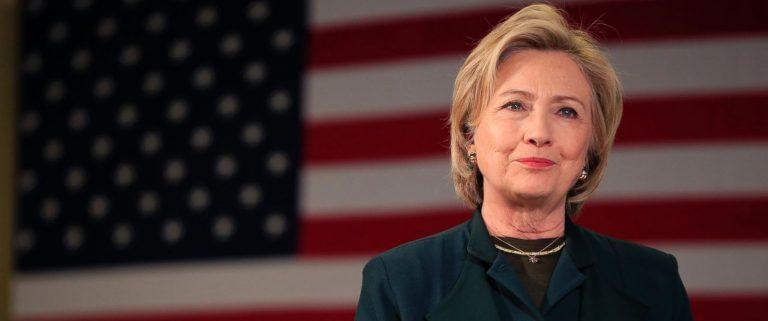
In the financial markets, it has always been assumed that Democratic nominee Hillary Clinton would make a better president than her Republican counterpart Donald Trump. This is more practical than political, since Clinton is assumed by Wall Street to be a “safer” candidate than Trump, a so-called “wildcard” nominee with no track record in politics. But how true is this assumption? Below we explore reasons why a Clinton presidency may not be a safe bet after all.
For starters, political experts have noted a remarkable similarity between both parties on trade and corporation provisions, which means that a Clinton presidency isn’t necessarily better for stocks or the economy. After all, if we are assuming that Trump is a bad idea simply because he’s the unknown, we also can’t put much stock into Clinton given that her party’s policies on market-sensitive sectors are roughly the same.
For example, Clinton and Trump have both opposed the Trans-Pacific Partnership agreement, despite the latter being more vocal about it. If Clinton is elected president, her stance on TPP wouldn’t benefit US industrials, which rely heavily on international trade.
However, where both candidates differ dramatically is on the tax code. Trump wants to cut taxes, whereas Clinton wants to restructure them to extract more money from high-income earners. It’s too bad she hasn’t yet offered any specifics around some of her popular reforms, such as the middle-class tax cut. There’s little guarantee that raising taxes on high income households will improve the state of the economy. There’s even less evidence to suggest that taxing the rich will solve America’s growing inequality problem.
While Clinton has vowed to reform the financial markets, it’s difficult to take her word seriously when she insists on getting paid hundreds of thousands of dollars to give speeches to Goldman Sachs and other financial institutions. At a time when most Americans want real financial market reform, it’s unclear whether Clinton will initiate them. In this instance, perhaps a wildcard candidate wouldn’t be so bad after all?
One of Clinton’s most noble fights has been against the pharmaceutical industry, which she has accused of price gauging the American public. If you’ve invested in the healthcare industry, a Clinton White House definitely isn’t in your best interest. Healthcare and pharmaceutical stocks have sold off sharply in response to Clinton’s criticisms. In year-over-year terms, healthcare is the fourth-worst performing sector on the S&P 500. Investors can expect more hard times if the tough-talking former Secretary of State is sworn in this winter.
Then there’s the elephant in the room that many in the market community simply overlook: Hillary’s hawkish voting record. The former First Lady is often referred to as “Hillary the Hawk” for her support of military intervention across the Middle East and North Africa. She voted in favour of the Iraq War, the 2009 troop surge in Afghanistan and NATO intervention in Libya to overthrow Muammar Gaddafi. She was also in favour of arming rebels in Syria – many of which would later join ISIS, arguably the most destructive sub-state actor in the modern era.
So whereas Trump may talk tough, Clinton has actually voted on policies that have sunk the United States into a spiral of endless wars and economic peril. She has also supported the same policies that have made the Middle East more destructive than it was before. This has led to many nasty side effects, including the European refugee crisis and growth of terrorist cells around the world.
While nobody is saying Clinton will launch another war once she assumes office, her woeful track record should be enough to give pause to investors assuming she is the safer choice as president; combined with her other policies, there’s little evidence to support this. That’s not to say Donald Trump is the better choice – but we should at least have an honest conversation about where the risks truly lie.
The US presidential election takes place November 8.
Nikolas Xenofontos, Director of Risk at easymarkets.com on 18/10/2016
Risk warning: Forward Rate Agreements, Options and CFDs (OTC Trading) are leveraged products that carry a substantial risk of loss up to your invested capital and may not be suitable for everyone. Please ensure that you understand fully the risks involved and do not invest money you cannot afford to lose. Our group of companies through its subsidiaries is licensed by the Cyprus Securities & Exchange Commission (Easy Forex Trading Ltd- CySEC, License Number 079/07), which has been passported in the European Union through the MiFID Directive and in Australia by ASIC (Easy Markets Pty Ltd -AFS license No. 246566).
